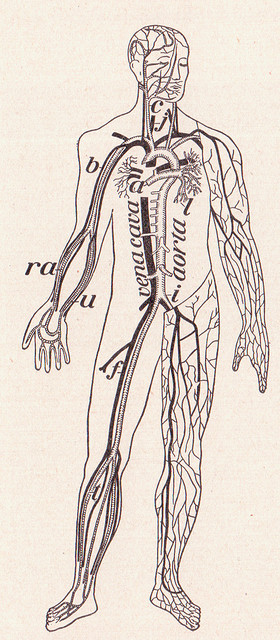A Matter of Distance (and Maybe Something Else)

I first heard the expression fairly recently. It was attributed to the child of a famous political figure who is very close to the extreme left of the political spectrum in our nation.
While the politician’s daughter shares her mother’s political philosophy, it was reported that she gained a new perspective. The perspective was a result of her actually spending some time “up close and personal” with people who do not agree with her or her mother politically.
This person had left the “hallowed halls of academia.” She had not done her research by attending political rallies, strategy sessions, or policy forums. Instead, she actually rubbed elbows and communicated with ordinary people with whom she disagreed on a number of political and social issues.
The comment that I thought was interesting was made after her after her experience. For all I knew at the time, it was original with her. After doing just a little research, I found out that I was wrong. In fact, I began to believe that I may be among the last people to have heard the expression.
So – what is this “little gem?” What did I hear that I thought was so insightful? What did I know from experience before I actually heard it articulated? What had many others already said?
It’s hard to hate up close.
Didn’t you already know that to be true? Haven’t you had the experience of finding common ground with somebody with whom you have very little in common after you have spent some quality time with him or her?
On the other hand, maybe you don’t know about that. Maybe you spend time only with your friends and talk about people who, in some way, are different from you. The difference may be race, economic status, political issues, or a host of other things. Maybe you’ve never really considered talking to – and spending time with – people with whom you have some differences.
May I suggest two reasons you might want to spend time with people like that? First and foremost, you’d be following the example of Jesus. One of the things about which the religious leaders were critical was the amount of time Jesus spent and the attention He paid to those who they considered to be outcasts. He spent time with them, ate with them, and actually had conversations with them.
The second reason I would suggest spending time with those with whom you might disagree is that you might actually find it rewarding. In fact, your life might be enriched as you begin to understand “where they are coming from.”
There are two things I’m not suggesting. First, I am not suggesting that spending time with people like the ones under consideration here will change your mind. I’m not even suggesting that it should change your mind. I’m just suggesting that dialogue can be healthy.
Second, I’m not suggesting that spending time with others can always cure all that might be wrong in a relationship. While you may discover that it is difficult to be disagreeable with people with whom you disagree, the other person may be one who is so filled with hate that a positive relationship will never be established.
To coin a phrase –
That’s not on you. That’s on them.
Our job is to do what we can to establish good, healthy, and positive relationships. I can do all I can to get rid of the problem of distance. I can make sure that my attitude, motives, and disposition are all as they should be.
However, I cannot control somebody else’s heart. I can – and should – pray for them, but I cannot control how they react to me.
If possible, so far as it depends on you, live peaceably with all (Rom. 12:18, ESV).
To Receive Every Article from A Legacy of Faith through Email for Free, Click Here
AUTHOR: Jim Faughn


